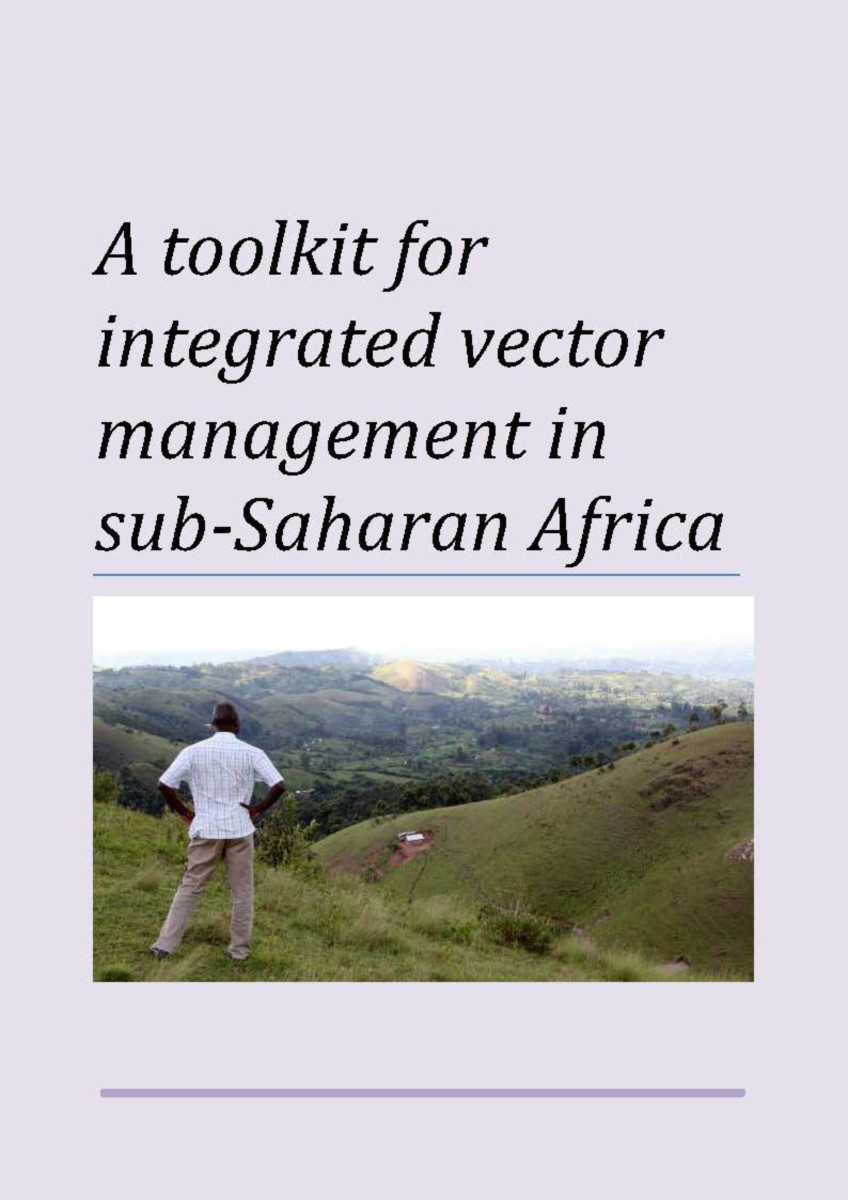Toolkit for Integrated Vector Management in Sub-Saharan Africa
- Publisher
World Health Organization - Published
27th July 2016 - ISBN 9789241549653
- Language English
- Pages 238 pp.
- Size 8.25" x 10.5"
This toolkit for integrated vector management (IVM) is designed to help national and regional program managers coordinate across sectors to design and run large IVM programs. It is an extension of earlier guidance and teaching material provided by WHO: Handbook for integrated vector management, Monitoring and evaluation indicators for integrated vector management, Guidance on policy-making for integrated vector management and Core structure for training curricula on integrated vector management.
The toolkit provides the technical detail required to plan, implement, monitor and evaluate an IVM approach. IVM can be used when the aim is to control or eliminate vector-borne diseases and can also contribute to insecticide resistance management. This toolkit provides information on where vector-borne diseases are endemic and what interventions should be used, presenting case studies on IVM as well as relevant guidance documents for reference.
The diseases that are the focus of this toolkit are malaria, lymphatic filariasis, dengue, leishmaniasis, onchocerciasis, human African trypanosomiasis and schistosomiasis. It also includes information on other viral diseases (Rift Valley fever, West Nile fever, Chikungunya, yellow fever) and trachoma. If other vector-borne diseases appear in a country or area, vector control with an IVM approach should be adopted, as per national priorities. Malaria, as one of the most important vector-borne diseases in sub-Saharan Africa, is the main focus of this document. Programs targeting other vector-borne diseases can learn from the experiences gained from malaria vector control and presented here.
World Health Organization
World Health Organization is a Specialized Agency of the United Nations, charged to act as the world's directing and coordinating authority on questions of human health. It is responsible for providing leadership on global health matters, shaping the health research agenda, setting norms and standards, articulating evidence-based policy options, providing technical support to countries, and monitoring and assessing health trends.


